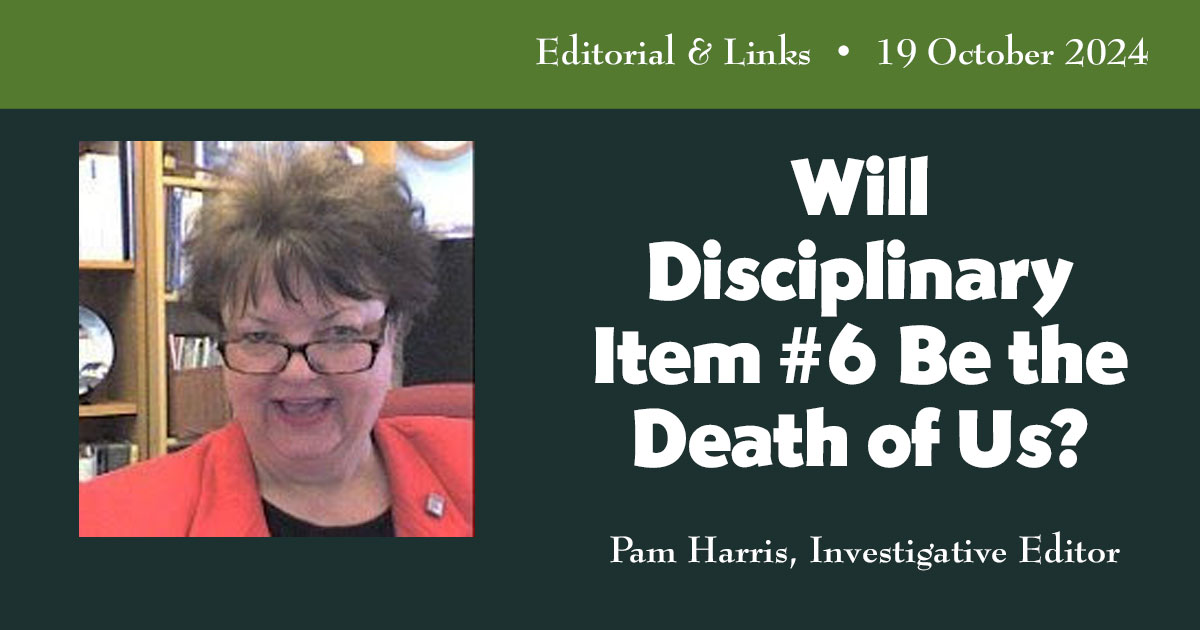Study: Lesson 3, The Backstory: The Prologue — Joseph Jerome THANK YOU for your continued financial support of our Media Ministries. Please donate by visiting "https://adventistgiving.org/#/org/ANB4RC/envelope/start" and select “Media Ministries”. Connect With Us
X: RemnantSDA
Facebook: RemnantSDAchurch.org
Instagram: RemnantSDAchurch Source: https://www.youtube.com/watch?v=1WwKM9JtwgQ
Editorial: “Will Disciplinary Item #6 Be the Death of Us?”

Item #6: “Unauthorized or improper disclosure of information–unauthorized or improper use or release of personal, confidential, private, or proprietary employer or denominational information by any means.” Serious, wide-ranging, and concerning new communication rules for church clergy and church employees were discussed this week at the General Conference (GC) Autumn Council in Silver Spring, Maryland. This […] Source: https://atoday.org/editorial-will-disciplinaryitem-6-be-the-death-of-us/
God First: Your Daily Prayer Meeting#799
Matthew 21:22 – "If you believe, you will receive whatever you ask for in prayer." Tag someone in need of prayer, and kindly share your prayer requests here. https://bit.ly/3GdFXpR Source: https://www.youtube.com/watch?v=qPxz9uX5cCo
This is How Hope Fills My Life
Discover how AWR's messages of hope transformed my life with happiness. Ready to share the love of Jesus? Visit awr.org for easy steps. Hit that like button and subscribe for more inspiring stories of faith and joy! #HopefulWords #SpreadJoy #InspiringFaith #awr #adventistworldradio Watch the full video: https://www.youtube.com/watch?v=FEPCDfhDrMA MB019JXZHOEKXEG #short Source: https://www.youtube.com/watch?v=SH0tTxdL14A
SdS – Il Vangelo di Giovanni – Lezione 4
TESTIMONI DI CRISTO IN QUANTO MESSIA.
Approfondimento della lezione della Scuola del Sabato numero 4 – IV trimestre 2024 con Mariarosa Cavalieri, Ellen Silvestro e Filippo Alma. 📩 Risorse per il IV trimestre 2024:
🔗 https://uicca.org/4-trimestre-2024-lez-4
🔗 https://uicca.org/nocciolo-quarto-trimestre-2024
🔗 https://vocedellasperanza.it
🔗 https://www.edizioniadvshop.it/lezionario-sds-adulti-2-2024.html
🔗 https://ottopermilleavventisti.it/chiesa-avventista/ Source: https://www.youtube.com/watch?v=G1pQ-fjx-8w
